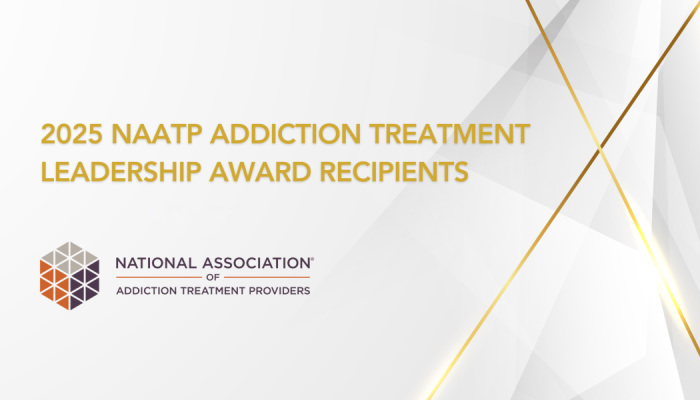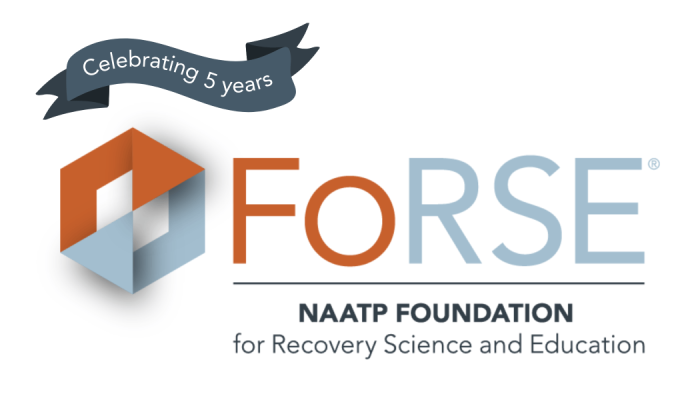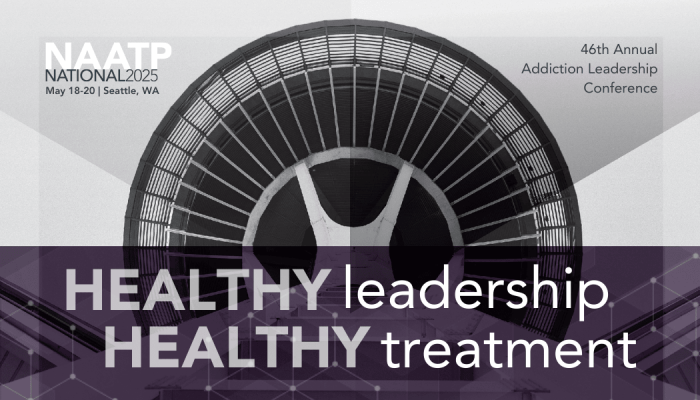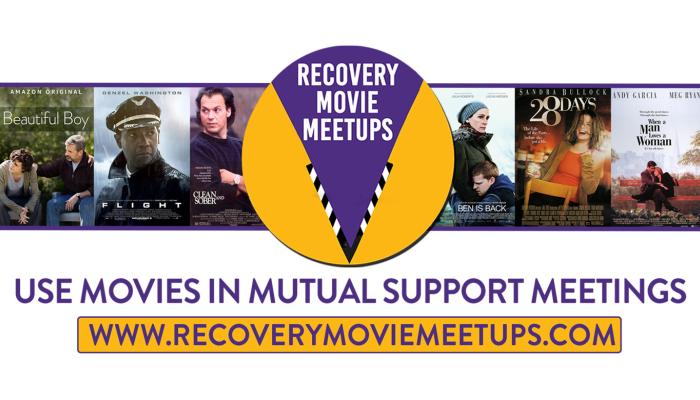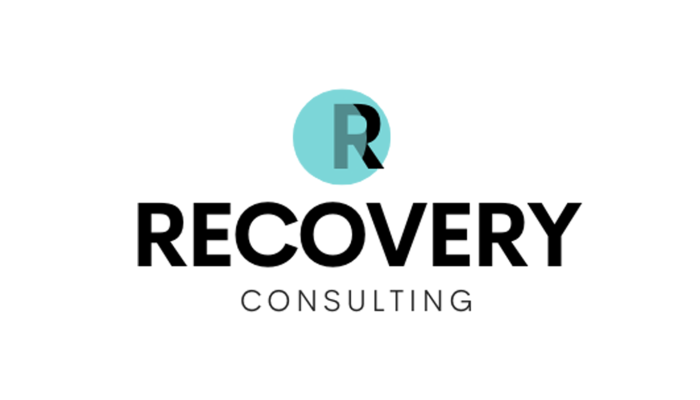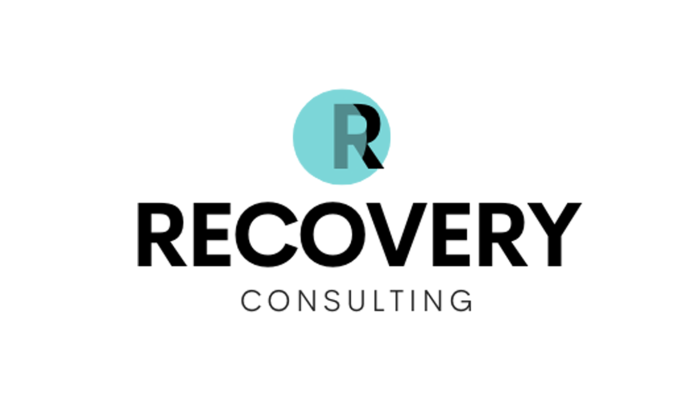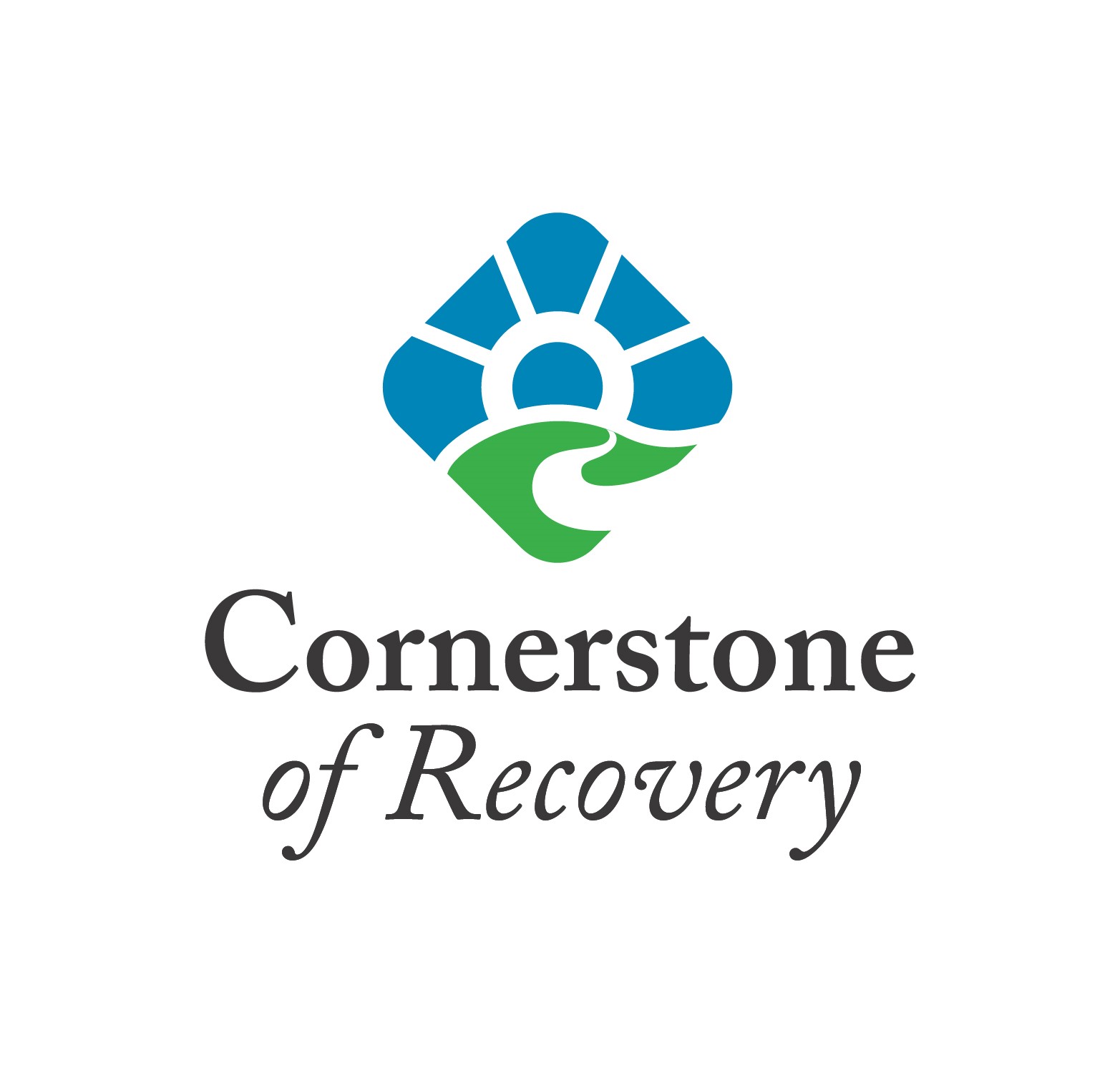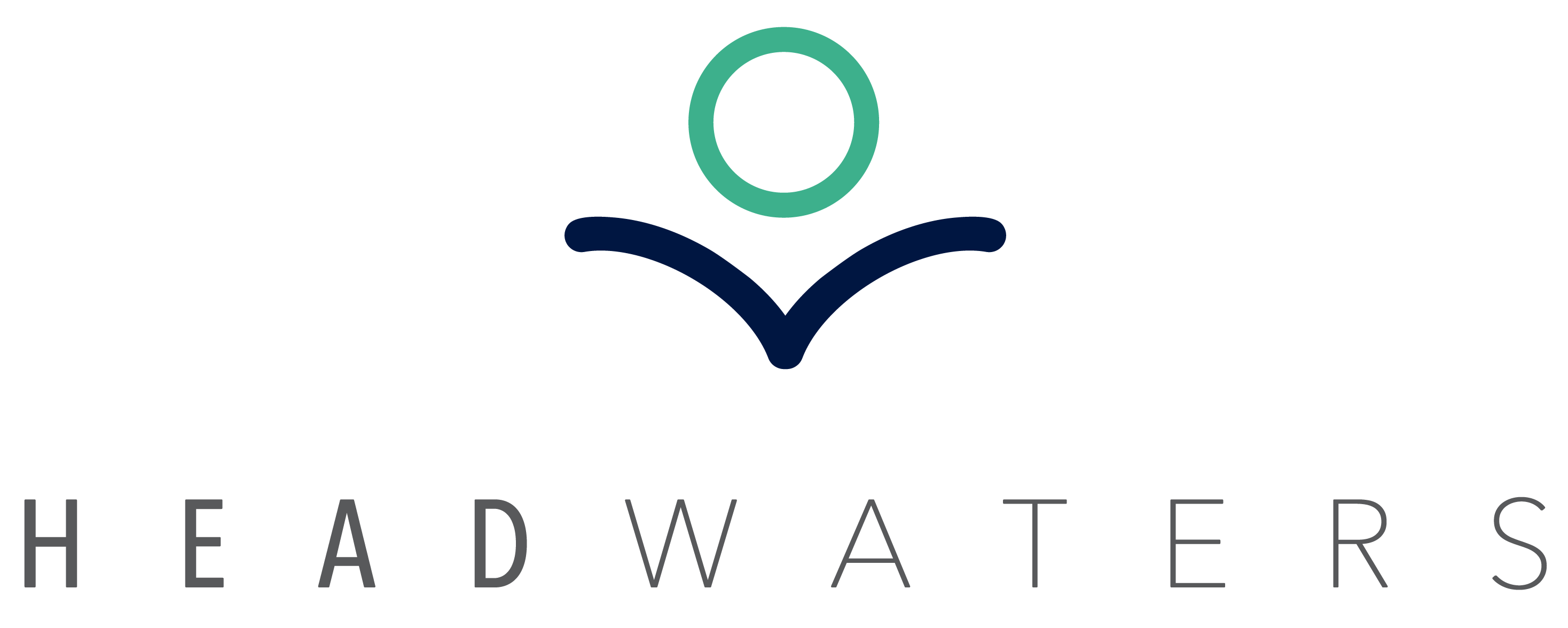NAATP is committed to providing support and guidance to our members at this time. We are responding to the current situation and will start to address protocols in the areas of admissions, patient health and safety, and human resources. As mentioned in our leadership message, we have started a Special Webinar Series directed at providing guidance and support. These webinars will be recorded and shared as resources to the public.
COVID-19 Vaccine Roundtable: Leadership Strategies & Myth-Busting
Presenters: Dr. Joe Parks, NCBH, Jerry Schwab, High Watch Recovery, Dr. Gregory Serfer, Tully Hill
January 28, 2021
Join a panel of leaders in the behavioral health and addiction treatment field for a roundtable discussion about the COVID-19 vaccine rollout. Hear key safety information about how the vaccine was produced, how to respond to common myths and fears, and operational best practices and legal considerations for encouraging hesitant staff to get vaccinated.
Covid-19 Impact on Addiction Treatment: Survey Findings & Implications
Presenters: Mark Dunn and Peter Thomas, NAATP Reyna Taylor, NCBH
October 22, 2020
Join a collaborative discussion between Peter Thomas, Director of Quality Assurance at NAATP, and Reyna Taylor, VP of Public Policy and Advocacy at NCBH, as they review findings from their respective COVID-19 Impact Surveys, which polled the addiction field to measure the myriad ways the pandemic has affected treatment organizations. Presenters will begin by discussing the “big picture” takeaways for treatment to date, offer detailed data points gathered from survey responses, and wrap up by empowering attendees to take action and advocate for the near- and long-term stability and success of the addiction treatment field
Insurance Billing and Reimbursement in the Context of COVID-19
Presenters: Ben Dittman and Jessica Chase, Avea Solutions, Marcello La Rocca, Sandstone Care
May 21, 2020
As treatment centers work to expand their services and find new ways to provide patient care during COVID-19, many face uncertainty with how to bill appropriately and what to expect with payments. Join us to learn what trends we are seeing so far across insurance billing, reimbursements, and payer behavior. Presenters will also cover the basics on telehealth billing and the considerations and best practices you should know for meeting payer requirements to get paid. Additionally, we’ll discuss the long-term effects we are predicting and the impact they will have on getting paid in the “new normal” of behavioral health virtual services.
DBT Skills for Effective Leadership in Times of Crisis
Presenter: Dr. Annie Peters, NAATP
May 14, 2020
People who work in the addiction treatment field are often drawn to the work because we care deeply about individuals with substance use and mental health disorders. We regularly hear stories of personal trauma and tragedy and see people at perhaps the worst moments in their lives. Clinical staff, support staff, and leaders alike often struggle with compassion fatigue, many to the point of exhaustion, burnout, and even health and wellness problems. These difficulties are even more salient when the organization is experiencing a crisis or potentially traumatic circumstances. By applying best practices, shared ethical values, and even clinical skills to leadership and supervision, we can support our employees and ourselves through crisis situations and stay engaged in our work, maintain positive working relationships, and preserve personal balance and wellness. This presentation explores leadership practices that apply principles and skills of Dialectical Behavior Therapy (DBT) to enhance leader and staff self-care and to promote a work environment that is experienced as safe, trusting, mindful, and collaborative.
Telehealth Gone Viral: Practical Tips for Virtual Integration
Presenters: Dr. Nick Hayes, Randall Lea, and Bonny O'Neill, Cumberland Heights Foundation
May 7, 2020
Transitioning to telehealth services during a pandemic presents challenges for an organization on multiple levels. This webinar will provide practical approaches to circumvent the landmines associated with rapid telehealth conversions. Presenters will cover the technical, administrative, clinical, and practical aspects related to our organization’s experience. Strategies with respect to the following topics will be discussed: informed consent, labs, billing, documentation, confidentiality, establishing group cohesion and rapport, and overcoming technical and behavioral challenges. Time will be allotted to field questions regarding participants' implementation process.
Understanding and Addressing Compassion Fatigue During COVID-19
Presenter: Dr. Michael Barnes, Foundry Treatment Center
April 30, 2020
In this presentation, Dr. Michael Barnes reviews the increased potential for Compassion Fatigue in addiction treatment providers responding to the unique requirements of COVID-19. Dr. Barnes will describe Compassion Fatigue, how it develops, common symptoms, and methods of addressing its impact. He will examine the unforeseen stressors that accompany the emergency requirements to shelter in place and social distancing. He will discuss the challenges associated with an urgent need to master new technologies while attempting to meet client needs through the unfamiliar process of remote client care. He will introduce the impact of secondary and chiasmal trauma that affects families, organizational systems and communities, as individuals struggle to cope with clients, family members, and friends being impacted by the easily-transmitted virus, the divisive 24-hour news cycle and overwhelming powerlessness to simultaneously prevent and grieve the growing number of deaths that take place each day. Finally, Dr. Barnes will identify self-care practices that can assist addiction professionals to better cope with the demand for living and working in the time of COVID-19.
Public Relations Strategy: Our Obligation to the Field and COVID-19
Presenter: Deni Carise, Recovery Centers of America
April 23, 2020
Public relations strategies or PR for most companies (from hospitals to auto dealerships) generally work to inform the public, prospective customers, investors, partners, employees, and other stakeholders in a way that leads them to develop or maintain a favorable view of the organization. Unfortunately, with little proactive PR in our field, the public learns about substance use disorders and their treatment primarily from coverage by popular news media outlets including TV, radio, newspapers, social media, etc. This session will make the case that our field has an obligation to the public that is larger than that of other types of companies or organizations, and that our public relations strategies must strive primarily to educate the public about substance use disorders, their treatment and recovery successes, not just to promote one particular organization. This is particularly important within the current COVID-19 pandemic. Without active input from the field, we leave it to the press to guide public opinion on such important topics as whether addiction is a disease, whether treatment is effective, the value of various treatment and harm reduction strategies and the availability of treatment during the current pandemic. Industry leadership must make the effort to inform the public, otherwise those outside of our field, unknowledgeable about the science of addiction, its treatment and recovery, will continue to influence public opinion.
COVID-19 and the Rapid Transition to Telehealth: Understanding the Impact
Presenters: Dr. Annie Peters, PhD, NAATP, Dr. Holen Hirsh, OMNI Institute, Dr. Nick Hayes, Cumberland Heights Foundation
April 16, 2020
While inpatient and residential addiction treatment are still necessary and being provided during COVID-19, many treatment providers have transitioned outpatient services to online care delivery. The effectiveness of telehealth for this type of care has not been clearly established, and providers need access to information and resources that will support their work during this crisis. This webinar will provide information on what we know about virtual addiction treatment, what is unknown and requires more research, and how to access a new online tool to gauge both the clinical impact of COVID-19 and the utility of online services.
Engaging In Solutions: Current Considerations & Planning For Organizational Recovery
Presenter: Jonathan P. De Carlo, C4 Consulting, Inc.
April 10, 2020
Within the rapidly evolving conditions and impacts of COVID-19, remaining solution-focused is an essential priority for organizational integrity. This webinar will provide perspectives for developing & implementing sustainable solutions for current organizational needs and planning considerations for disaster recovery in the future. Solution considerations across operational sectors will include: Organizational Health, Leadership & Staff self-care, Financial & Operational Adaptations, Business Development Considerations, and Clinical Program Considerations. Through the lenses of Trauma-Informed Care and Values Based Care principles, participants will explore pragmatic considerations for understanding their organization's current needs and developing actionable plans for enhancing their organization's sustainable integrity.
Expanding Access During COVID-19 with Hazelden Betty Ford
Presenters: Mark Mishek, Dr. Marvin D. Seppala, John Driscoll, and William C. Moyers, Hazelden Betty Ford Foundation
April 2, 2020
Want an inside look at how Hazelden Betty Ford is responding to COVID-19 and continuing to be a force of healing and hope in this unprecedented time? Join Senior Hazelden Betty Ford Leadership to learn how they are meeting the urgent needs of the people they serve with robust new protocols and procedures to reduce risks to them as well as to their students and staff. Also learn how they transitioned almost 1,500 patients to virtual services in about a week’s time, while also providing free online resources to support recovery everywhere.
Here We Go! Moving to Telehealth at the Speed of Light
Presenters: Holly Wilson and Dr. LaTisha Bader, Denver Women's Recovery
March 27, 2020
Plato quoted, “Necessity is the mother of invention.” Telehealth was already becoming a viable avenue for providing effective treatment, but most of us weren’t ready to jump into it with both feet at the beginning of this worldwide public health emergency. This webinar will highlight best practices, share some basic information about legal and ethical concerns, recognize barriers and how to address them, and try to get you comfortable with the practice of utilizing telehealth. It will encourage innovative thinking about how and when to provide services and the “how-to” of providing quality care. This session will be useful for all familiarity levels, whether you are at a starting place or need a refresher to make your practice portable.
Medical Best Practices and Business Considerations During an Outbreak
Presenters: Dr. Greg Hobelmann and Alex Denstman, Ashley Addiction Treatment
March 24, 2020
This webinar review the abundance of caution and heightened response approach to patient care necessary in our residential and outpatient facilities in the midst of COVID-19. Care begins with the first call, and this is also the point at which the screening process begins. The speakers will review screening processes at all points throughout care, as well as the steps taken in the event that a patient screens positive for symptoms and/or is at elevated risk. This is a rapidly evolving situation in which updates are being made daily, and providers must be agile and responsive in their protocols and procedures.
Leadership Challenges for Addiction Service Providers Amid the COVID-19 Health Crisis
Presenters: Bob Ferguson, Jaywalker Lodge, Nanette Zumwalt, Hired Power
March 19, 2020
Beyond the standard protocols of hygienic vigilance and social distancing, what can we do as leaders in the addiction treatment arena to safeguard our communities and combat the spread of the COVID-19 virus? Join us as we discuss crisis leadership strategies both for managing risk within our organizations, as well as for communicating proactively with various publics. With years of experience leading others into battle against the life-threatening epidemic of addiction – who better than us to support and direct our own communities at this time of global crisis?




